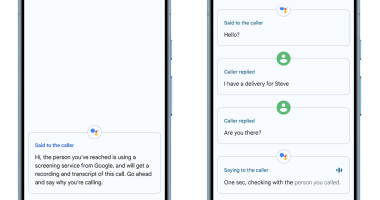
Australian legislation that would effectively require Facebook Inc. and Alphabet Inc.’s Google to pay news outlets for content cleared its last major hurdle Wednesday, potentially setting a global precedent for regulating the tech giants’ relations with publishers.
The Australian government’s proposal prompted a showdown with both companies, with Facebook removing news from its platform in the country for five days and Google briefly threatening to shut down its services there. Both tech giants later shifted course toward striking deals with media companies, in Facebook’s case after winning some concessions from Australian policy makers on the legislation.
The showdown in Australia represents the boiling-over of a question that has long simmered around the world: Should big tech platforms have to pay publishers for the news content that populates their sites?
Why haven’t Google and Facebook had to pay for news?
Google and Facebook say they help publishers by delivering traffic. In their view, requiring the tech companies to pay to display news content violates the principles of open linking that make the web work. Publishers say the main reason they don’t get paid is a power imbalance with tech platforms, whose role in distributing their content is so important that publishers feel they have little choice but to assent to tech companies’ terms.
Copyright laws differ by country, but in the U.S. the news headlines and snippets turned up in Google searches are typically considered a fair use of that content under copyright law—meaning that a company can display those snippets without having to negotiate a licensing fee from the copyright holder. Determining what should count as fair use is complicated; it includes weighing such factors as whether a news snippet on a platform could be considered a replacement for the full article, which would harm the publisher.
Whether Google’s and Facebook’s current use of news content is fair use hasn’t been tested in court. A key legal decision from 2007 offers a guiding principle for what copyright lawyers expect today. In that case, Perfect 10, a publisher of pornography, had sued Google claiming that the thumbnail photographs indexed in Google’s image search had hurt its business. The Ninth Circuit sided with Google, primarily because it saw Google’s search engine as a “pointer” to Perfect 10’s content, not a replacement for it.
Google has cited the ruling, among others, to argue that it respects publishers’ copyrights.
In a blog post Wednesday, Facebook’s vice president of global affairs, Nick Clegg, argued that the Australian dispute represents a misunderstanding of the relationship between Facebook and news publishers. “It’s the publishers themselves who choose to share their stories on social media, or make them available to be shared by others, because they get value from doing so,” he wrote, adding, “We neither take nor ask for the content for which we are being asked to pay a potentially exorbitant price.”
Why do publishers think Google and Facebook should pay for news?
Publishers argue that Google’s business has changed massively since the Perfect 10 ruling in 2007. In Google’s early days, a search turned up a list of links to publishers’ websites. Today, Google often tries to answer users’ queries itself, filling the top of its results page with large images and text often plucked from publishers, making it less necessary for users to click through a link.
Facebook users can post comments about a linked news article based on a headline and image that they may never click on—and thus never arrive on the publisher’s page. Meanwhile, the social-media giant can monetize the attention and engagement generated by the post with its own ads.
Google and Facebook have grown into ad behemoths, with advertising accounting for the vast majority of their revenue last year, $181.69 billion and $86 billion, respectively. In contrast, the news-publishing industry’s ad revenue has steadily declined.
What actions have governments taken?
Governments around the world have been moving to adjust the balance of power between big tech platforms and news organizations as the news industry’s financial disadvantages under the current model became clear.
In 2019, the European Union changed its copyright laws to allow publishers to ask tech platforms to pay for using snippets of their content. When France became the first country to implement the directive, Google lobbied hard against the law and threatened to shut down Google News if it were forced to pay for licenses. In January, Google signed a deal with a group of French publishers to create a framework to pay them for online news.
In the U.S., a bipartisan bill has been kicking around Congress for the last several years that would give news publishers the right to band together temporarily to negotiate with Google and Facebook. The bill hasn’t been reintroduced in the current session.
Australia is expected to pass a tougher version of such regulation, which would require tech platforms over a certain size—meaning Google and Facebook—to engage in “baseball” arbitration with news publishers to come to an agreement on payment for news. The arbitration method entails two sides that can’t reach a deal each presenting a single final offer, and the arbitrator picks one. The approach is designed to level the playing field between tech giants and publishers during negotiations.
Facebook’s Mr. Clegg said in his blog post that the original Australian proposal was “like forcing car makers to fund radio stations because people might listen to them in the car—and letting the stations set the price.” The company restored sharing of articles after the government agreed to changes that give tech platforms more time to strike deals privately with publishers before entering arbitration.
How have the tech platforms responded?
In the years preceding the Australian dispute, Google and Facebook responded to growing pressure from publishers and politicians by tossing money at news publishers while digging in around the core copyright issue. The payments have taken various forms, from grants to new products like the Facebook News Tab or Google News Showcase, which enable the tech platforms to pay for some content on their terms.
Both Google and Facebook initially approached the proposed Australian law the same way—by threatening to shut down their services in the country if it passed. In a December blog post, Google called the measure “unworkable.”
SHARE YOUR THOUGHTS
Do you think the relationship between Google and publishers is evenly balanced? Why or why not? Join the conversation below.
Their strategies later diverged. Google unveiled a three-year global deal with News Corp, the parent company of The Wall Street Journal, last week worth tens of millions of dollars to license News Corp content for various products. Facebook, meanwhile, made good on its threat to remove news from its platform and did so on Feb. 18, only to change course on Feb. 23 after securing some concessions from the Australian government.
William Easton, managing director of Facebook in Australia and New Zealand, said the company has a different relationship to news than Google does because “publishers willingly choose to post news on Facebook,” whereas Google search crawls the web.
Mr. Easton also said Facebook’s business gain from news was minimal. “News makes up less than 4% of the content people see in their News Feed,” he said.
Traffic to Australian media outlets fell shortly after Facebook acted. News publishers in the country saw traffic from readers outside Australia decrease by about 20% in the hours after Facebook imposed its blackout, according to data from analytics firm Chartbeat.
Corrections & Amplifications
Facebook’s revenue in 2020 was $86 billion. An earlier version of this article incorrectly said it was $70.7 billion. (Corrected on Feb. 23)
Write to Keach Hagey at [email protected]
Copyright ©2020 Dow Jones & Company, Inc. All Rights Reserved. 87990cbe856818d5eddac44c7b1cdeb8





















